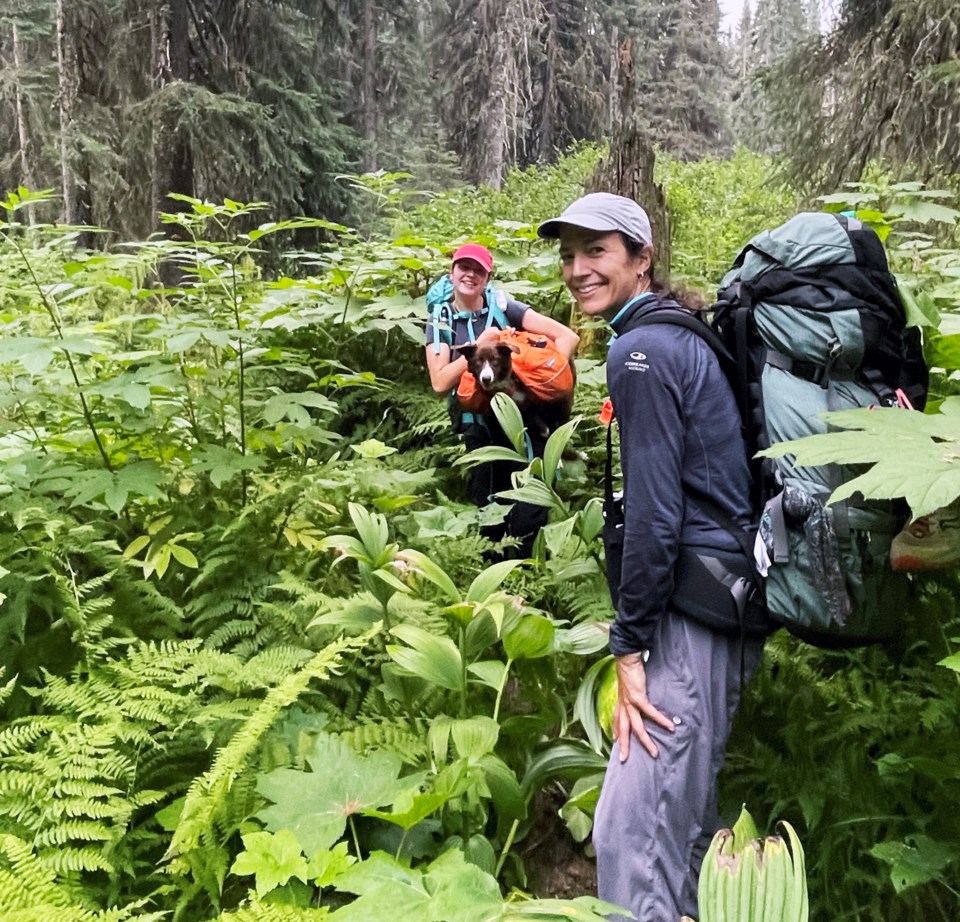Prince George surgeon Dr. Nadine Caron, whose career devotion to address disparities in Indigenous health in Canada led to the creation of UBC’s Centre for Excellence for Indigenous Health, has been appointed to the Order of British Columbia.
It is the province’s highest form of recognition for individual achievement and excellence in a chosen field. Caron is among 14 people selected for the award this year from 194 nominations.
“When I got the phone call, quite honestly, I was blown away,” said Caron. “It’s not something I ever anticipated.
“It’s really important when you get an award like this to recognize it’s not you, it’s not one person who comes close to warranting something like this. It’s massive amounts of people behind you. It’s everyone I work with at UBC’s Centre for Excellence Indigenous Health. It’s the team I get to work with daily as the First Nations Health Authority chair in Cancer and Wellness at UBC. It’s the operating room anesthesiologists, the nurses, the people that make sure the next person that comes in comes into a clean safe environment. It makes me aware of just how fortunate I am to be surrounded by so much support.”
In the biography that highlights some of the accomplishments that make her worthy of the award, the 52-year-old Caron is referred to as a surgeon, researcher, mentor, educator, patient advocate, community builder and internationally-renowned health leader committed to improving inequities in accessing health care and improving clinical outcomes for Indigenous peoples. Caron draws a high degree of satisfaction looking back at the work it took to earn those titles but regards her role as the mother of her 16-year-old daughter, Aliah, as her greatest distinction.
“The thing I’m most proud about is being a mom,” said Caron. “In terms of what is the thing I do that’s going to change the world most and will have the greatest impact on the world around me when I’m gone, hands down, it’s being a mom.
“She just turned 16 in June. It’s being an athlete, it’s being a kind humble person and seeing the world through the next generation, hearing the questions she’s asking, and being held responsible to provide answers. I think the next generation deserves answers today for what we’re doing in the health care system and in society today and how we’re addressing some major responsibilities and how we’re not.”
As long as she’s been a mother, Caron has tried to set an example for her daughter to inspire her to become someone who shows a willingness to make positive contributions to society to help pave the way for future generations.
“Whether, as an individual, you sit back and just watch the world unfold and hope that we’re going in the right direction, or you get down in the weeds and be part of the solution, I think a fundamental responsibility as a parent is to make the world a better place,” Caron said.
Caron and her husband, Pat Turner, an emergency room doctor at UHNBC, passed on their athletic genes to Aliah, who excels in cross-county ski racing and biathlon. Pat won Olympic gold in the rowing eights in 1984, while Nadine was a dual-sport athlete at Simon Fraser University, playing four years with the varsity basketball team from 1988-92 and one year for the soccer team in 1993.
The daughter of an Ojibwe mother and an Italian father, Caron is the first Indigenous female graduate of UBC’s medical school, and after her residency at the University of California - San Francisco she moved back to Canada and became the country’s first female Indigenous general surgeon.
Caron moved to Prince George with her husband in 2005 to establish a clinical practice at University Hospital of Northern B.C. She also teaches at the Northern Medical Program at UNBC and serves as founding co-director the UBC Centre for Excellence in Indigenous Health. She has also served as a member of the governing council for the Canadian Institutes of Health Research. Since 2009, she’s held a public health faculty position at Johns Hopkins University at the Centre for American Indian Health at Baltimore, Md.
Now with 16 years of postsecondary education behind her, Caron was a graduate student completing her master’s degree in public health at Harvard University in 1999 when she presented her research to an audience that included future colleagues from Johns Hopkins University. Their backing encouraged her to address inequities in the Canadian Indigenous health system, especially for rural and remote patients in northern communities in B.C.
“I came back north of the border and realized the absolute paucity of programming, curriculum and support systems at institutions in Canada and it became harder and harder to come back home and realize how little we had,” Caron said. “Really, it was my experience at Johns Hopkins that was the impetus for pursuing the UBC Centre of Excellence in Indigenous Health, putting the idea out there and have friends and colleagues join the fight to make it happen.”
Despite the challenges of staff shortages and budget constraints at UHNBC, Caron continually sees improvements in patient care that come through the persistence of doctors, nurses, hospital administrators and educators connected to the hospital and she’s always on the lookout for the shining stars who want to make positive changes and just need a little advice and encouragement to get things done.
“Kudos to colleagues in the north fighting their own battles making inroads and changing what we have,” she said. “It’s certainly a much different health care system than what I moved up to and there’s a lot of unsung heroes.”



.png;w=120;h=80;mode=crop)